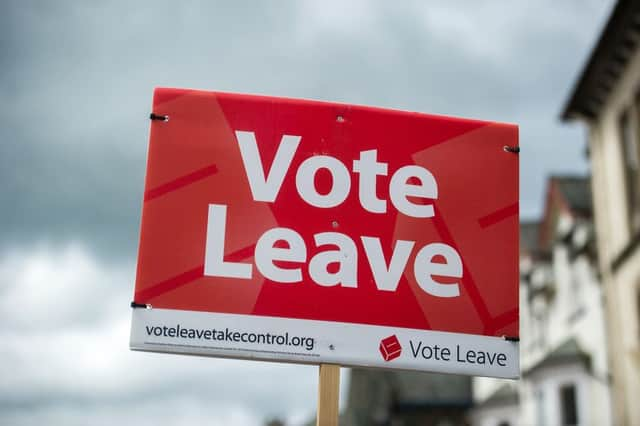Mev Brown: UK will be wealthier post-Brexit


To help, I have developed an argument I call “The Line”.
The argument is based on a very simple premise: politicians make a difference.
When politicians draw a line on a map, people on one side of the line become wealthier compared to those on the other. Consider East & West Germany, or North and South Korea.
Advertisement
Hide AdAdvertisement
Hide AdA less obvious example is Nogales, a town straddling the US/Mexican border. After politicians drew a line through Nogales, those on the American side of the line enjoyed greater wealth in comparison to their family and friends on the Mexican side.
So if politicians do draw a line between the UK & the EU will Britain be on the wealthier side, or the poorer side?
The key thing to understand is, governments do not create jobs or wealth. It is businesses that create jobs and wealth.
So, the first flaw in the Remain camp’s argument is British business. Following the 2008 financial crash, British businesses have picked themselves up, dusted themselves down and gotten back in the game.
So much so, that of all the new jobs created in the EU, half were created in the UK.
Let us not forget that most jobs are in the small and medium sized enterprises - those that do not deal with the EU’s single market and those that would benefit most from less red tape.
What government does, is create a business environment that makes it easier, or harder, to create jobs.
So the second flaw in the Remain camp’s argument is, the Chancellor himself, George Osborne. Like him or loath him, he has created a pro-business environment following the 2008 financial crash.
Advertisement
Hide AdAdvertisement
Hide AdBefore I go on, let me dismiss an obvious counter argument from the Remain camp that leaving the EU would make it harder to create jobs.
The culture in the UK is entrepreneurial, pro-change and, in a global context, outward looking. The culture in Europe is bureaucratic, anti-change and, in an EU context, inward looking.
Business is about solving somebody else’s problem, and charging them for it. Leaving the EU, in and of itself, will have no impact on the pro-business culture in the UK.
To underline the point, one senior member of Angela Merkel’s, conservatives, speaking on condition of anonymity, was more direct when discussing the EU without Britain: “Everyone will say it is a club of losers.”
Now, consider some basic economic indicators.
The UK unemployment rate is 5.1 per cent, in the Eurozone: 10.2 per cent. UK youth unemployment is 13.7 per cent, in the Eurozone: 21.2 per cent.
With regard to GDP, the UK has consistently outperformed the Eurozone.
For me, it is clear that post-Brexit, we will be on the wealthier side of the line.
The sooner, the better.